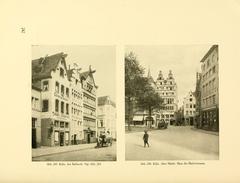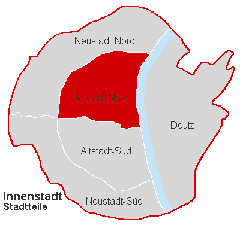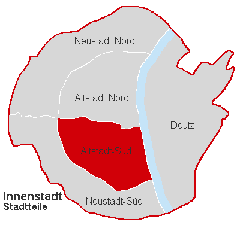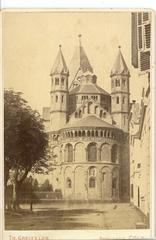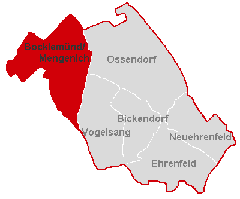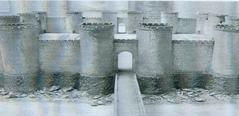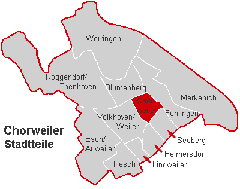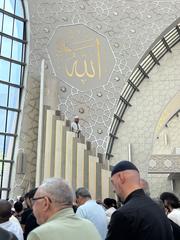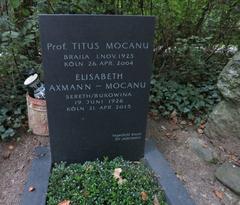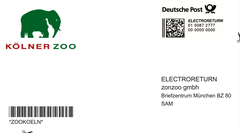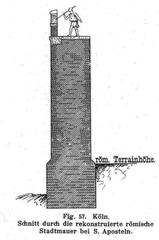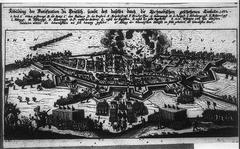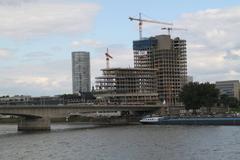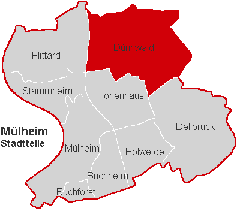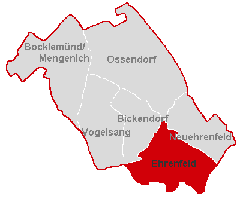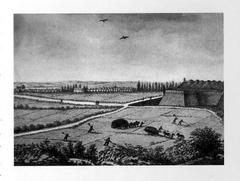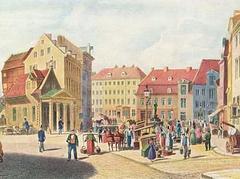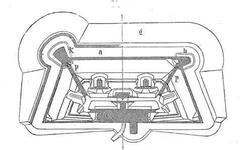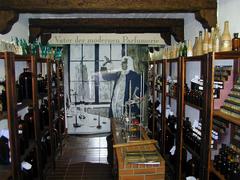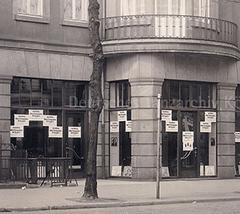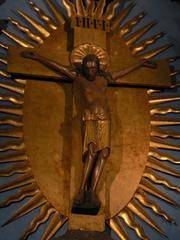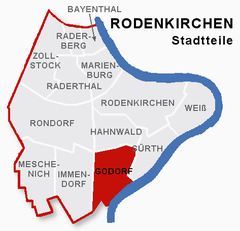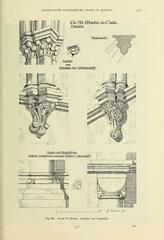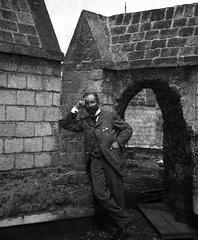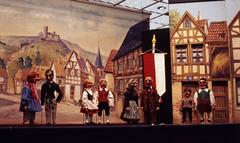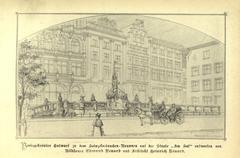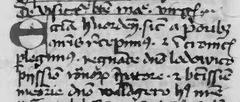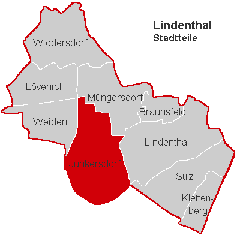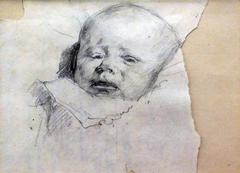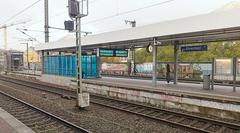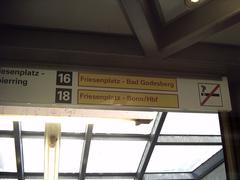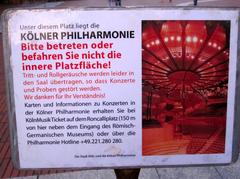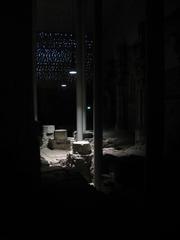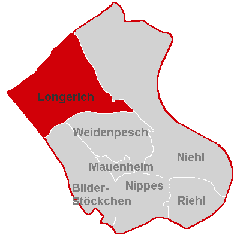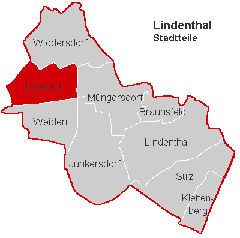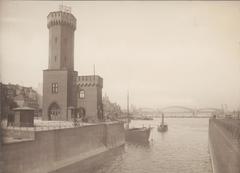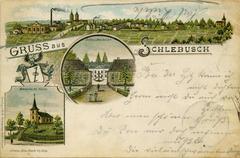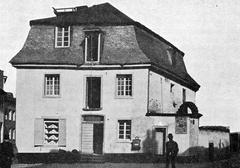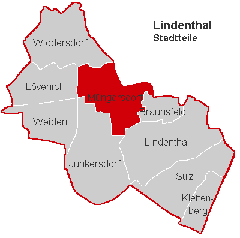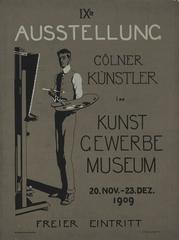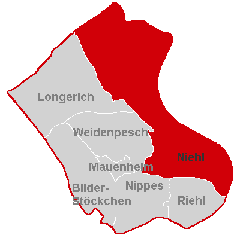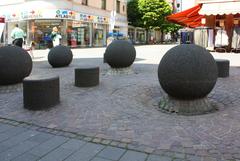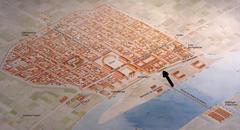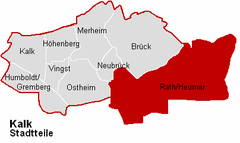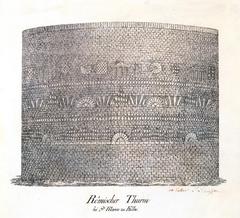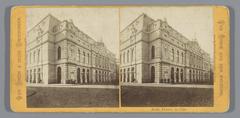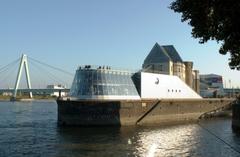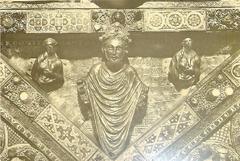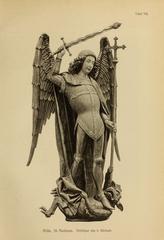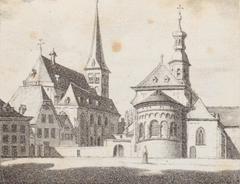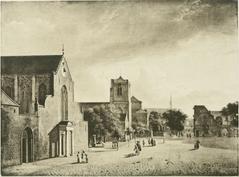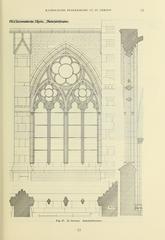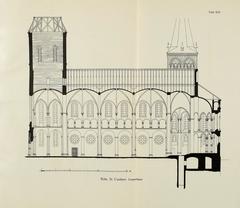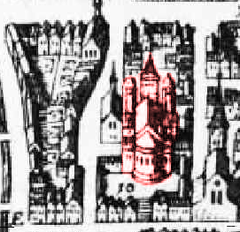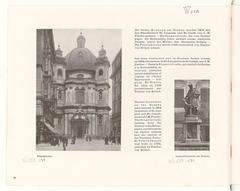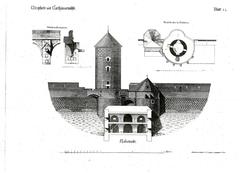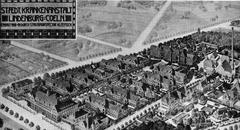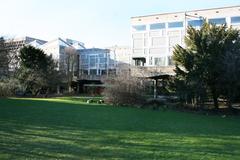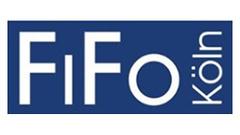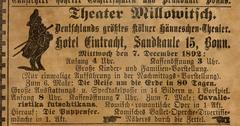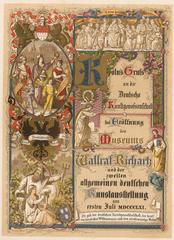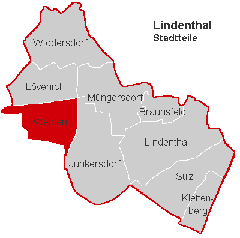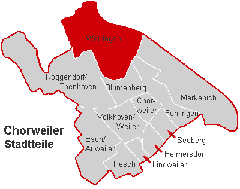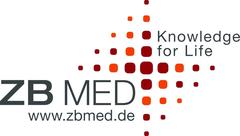Rhine-Westphalia Economy Archive Cologne: Visiting Hours, Tickets, and Historical Sites Guide
Date: 04/07/2025
Introduction
Located in the heart of Cologne, the Rhine-Westphalia Economy Archive (Rheinisch-Westfälisches Wirtschaftsarchiv, RWWA) is an essential destination for anyone interested in the economic, industrial, and social history of North Rhine-Westphalia (NRW). As one of Germany’s most dynamic and populous regions, NRW has played a pivotal role in shaping the nation’s economic landscape—from Roman trade networks and medieval mercantile success to the heights of industrialization and the innovations of the digital era. The archive preserves invaluable documents, photographs, and artifacts, offering a comprehensive view of the region’s evolution.
This guide provides detailed information on the RWWA’s history and significance, visiting hours, ticketing, accessibility, guided tours, and research opportunities. You’ll also find tips for exploring nearby Cologne attractions, making your visit both informative and memorable. Whether you’re a researcher, student, or casual visitor, the archive’s resources and exhibitions are designed to engage and inspire.
Explore NRW’s deep economic roots and cultural legacy through the RWWA, and discover how Cologne continues to thrive as a center of innovation and heritage. (Wikipedia: Cologne), (Wanderlust Magazine), (Rautenstrauch-Joest Museum).
Historical Context: The Economic Evolution of North Rhine-Westphalia
Roman and Medieval Foundations
Cologne’s economic significance dates back to its founding as Colonia Claudia Ara Agrippinensium in 50 AD. The city’s strategic location on the Rhine River facilitated trade in goods such as wine, grain, and textiles, while attracting merchants and craftsmen. By the Middle Ages, as a prominent Hanseatic League member, Cologne’s lively markets and artisan trades flourished. Landmark projects like the Cologne Cathedral not only shaped the city’s skyline but also drove economic and cultural activity. (Wikipedia: Cologne)
Industrialization and Economic Boom
The 19th century brought unprecedented industrial growth to the Rhine-Westphalia region. Rich coal deposits in the Ruhrgebiet and the navigability of the Rhine empowered the rise of factories, steelworks, and chemical plants. Cologne’s five Rhine ports became among Europe’s largest, driving the exchange of raw materials and finished goods. This period also saw diversification into insurance, publishing, and manufacturing, positioning the city and region as Germany’s industrial heartland. (Wanderlust Magazine), (Wikipedia: Cologne)
Post-War Transformation and Diversification
After the devastation of World War II, Cologne and the broader region underwent a remarkable reconstruction. The Wirtschaftswunder (economic miracle) rebuilt infrastructure and established new industries in media, communications, and technology. Modern Cologne is home to companies like Westdeutscher Rundfunk and RTL Television, and the Media Park and KölnTurm are symbols of this contemporary economic shift. (Wikipedia: Cologne)
Contemporary Economy and Global Significance
Today, Cologne is a leading driver of the NRW economy, blending traditional industries such as chemicals and automotive with innovative sectors like digital media, biotechnology, and aerospace. The Koelnmesse trade fair complex hosts over 50 major events annually, and the city’s ports and airport ensure connectivity. The region contributes over 22% of Germany’s GDP and houses 37 of the nation’s top 100 corporations, underscoring its national and international importance. (MPRA Paper), (Wikipedia)
The Role and Significance of the Rhine-Westphalia Economy Archive
The RWWA preserves and documents the economic, industrial, and social transformation of NRW. Its collections chronicle the rise and decline of coal and steel, the emergence of new industries, and the societal shifts driven by migration, labor movements, and technological change. The archive supports research, policy-making, and public education through exhibitions, digital resources, and partnerships with academic institutions.
Notably, the archive fills gaps in regional data, supports interdisciplinary research, and helps foster regional identity and pride. As part of Cologne’s rich network of museums and cultural institutions, the RWWA is a cornerstone for both local heritage and comparative studies.
Visiting the Rhine-Westphalia Economy Archive: Practical Information
Location and Accessibility
- Address: Eifelwall 5, 50674 Cologne, Germany.
- Getting there: Easily accessible via Cologne Stadtbahn (lines 12 and 15, Eifelwall stop). Public transport is recommended due to limited parking.
- Accessibility: The archive is fully wheelchair accessible, with elevators, accessible restrooms, and climate-controlled reading rooms. Lockers are provided, and bags/coats are not allowed in document areas.
Visiting Hours
- Monday to Friday: 9:00 AM – 5:00 PM
- Closed: Weekends and public holidays
- Note: Hours may vary for special exhibitions or group tours. Always check the official archive website before your visit.
Tickets and Admission
- General admission: Free for reading rooms and permanent exhibitions.
- Special exhibitions/tours: May require a small fee; consult the archive’s website or visitor services for details.
- Group visits/guided tours: Booking in advance is strongly recommended.
Visitor Facilities
- Reading rooms: Spacious, modern, and climate-controlled.
- Café/lounge: Refreshments and a quiet place to relax.
- Free Wi-Fi: Available throughout public areas.
- Shop: Publications, postcards, and souvenirs supporting preservation efforts.
Accessibility Features
The facility is fully accessible, with elevators, accessible restrooms, and staff available to assist visitors with disabilities. (Cologne Tourism)
Exhibitions and Archival Collections
Business and Industrial Records
- Company archives: Founding documents, annual reports, financial records, and correspondence from major firms across sectors like coal, steel, chemicals, textiles, and banking.
- Trade association and Chamber of Commerce files: Insight into economic strategies, trade relations, and regional policy. (Rautenstrauch-Joest Museum)
Personal Papers and Oral Histories
- Unique perspectives on industrialization, war, migration, and reconstruction, including diaries, memoirs, and oral history recordings.
Photographic and Audio-Visual Materials
- Extensive photographic collections documenting factories, workers, and pivotal events, complemented by company films and audio archives.
Special Collections
- Materials on trade fairs, labor movements, and economic crises such as the Great Depression and postwar recovery. (Expoquote)
Research and Academic Partnerships
- On-site research facilities: Registration required with valid ID; many rare documents are available digitally.
- Digital resources: Online catalogues and virtual exhibitions for remote research.
- Academic collaborations: Partnerships with the University of Cologne and other institutions support joint projects, workshops, and internships.
- International support: Multilingual staff assist with research inquiries and translations.
Guided Tours, Educational Programs, and Events
- Guided tours: Available in German and English by prior arrangement, offering in-depth exploration of the archive and its collections.
- Workshops and lectures: Regularly scheduled in cooperation with local universities and museums.
- Virtual tours: Accessible via the archive’s website, allowing remote exploration of key highlights.
Visitor Tips
- Book in advance: Especially for guided tours or research appointments.
- Bring ID: Required for registration in the reading room.
- Photography: Non-flash photography is permitted in most public areas; restrictions apply to some archival materials.
- Language: Bilingual signage (German/English); most staff speak English.
- Weather: July is mild to warm; bring an umbrella for city exploration.
- Nearby attractions: The archive’s central location allows easy visits to the Wallraf-Richartz Museum, Museum Ludwig, Cologne Cathedral, and the city’s historic Old Town. Consider the KölnCard for free public transport and discounts.
Frequently Asked Questions (FAQ)
Q: What are the archive’s visiting hours?
A: Monday to Friday, 9:00 AM – 5:00 PM; closed weekends and public holidays.
Q: Do I need a ticket to enter?
A: Admission is free for reading rooms and permanent exhibitions. Some special exhibitions or tours may require tickets.
Q: Is the archive accessible?
A: Yes, it is fully wheelchair-accessible with elevators and accessible restrooms.
Q: Are guided tours available?
A: Yes, in German and English, by advance booking.
Q: Can I take photographs inside?
A: Non-flash photography is allowed in public areas; restrictions apply for archival materials.
Q: Are there virtual tours?
A: Yes, available on the official website.
Q: What should I bring for research?
A: Valid ID for registration; many documents are available digitally.
Contact Information
For the latest on hours, exhibitions, and tickets, visit the official archive website or contact the Cologne Tourist Board at +49 (0) 221 346 43 0 or [email protected].
Conclusion and Call to Action
The Rhine-Westphalia Economy Archive provides a unique window into the economic, social, and cultural evolution of Cologne and North Rhine-Westphalia. Whether you’re researching Germany’s industrial past, exploring the city’s vibrant history, or seeking inspiration for the future, the archive’s collections and programs offer something for everyone. Plan your visit today, explore special exhibitions or guided tours, and enhance your experience with digital tools like the Audiala app. Stay connected for updates on events and discover related posts about Cologne’s heritage.
References and Further Reading
- Wikipedia: Cologne (2024)
- Wanderlust Magazine: North Rhine-Westphalia Travel Guide (2024)
- Rautenstrauch-Joest Museum (2024)
- MPRA Paper: The Economy of North Rhine-Westphalia (2012)
- Official Rhine-Westphalia Economy Archive Website (2024)
- Cologne Tourism (2024)
- Expoquote
- City of Cologne - Museums & Exhibitions
- NS-Documentation Centre
- My Germany Vacation
